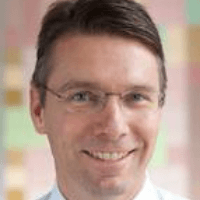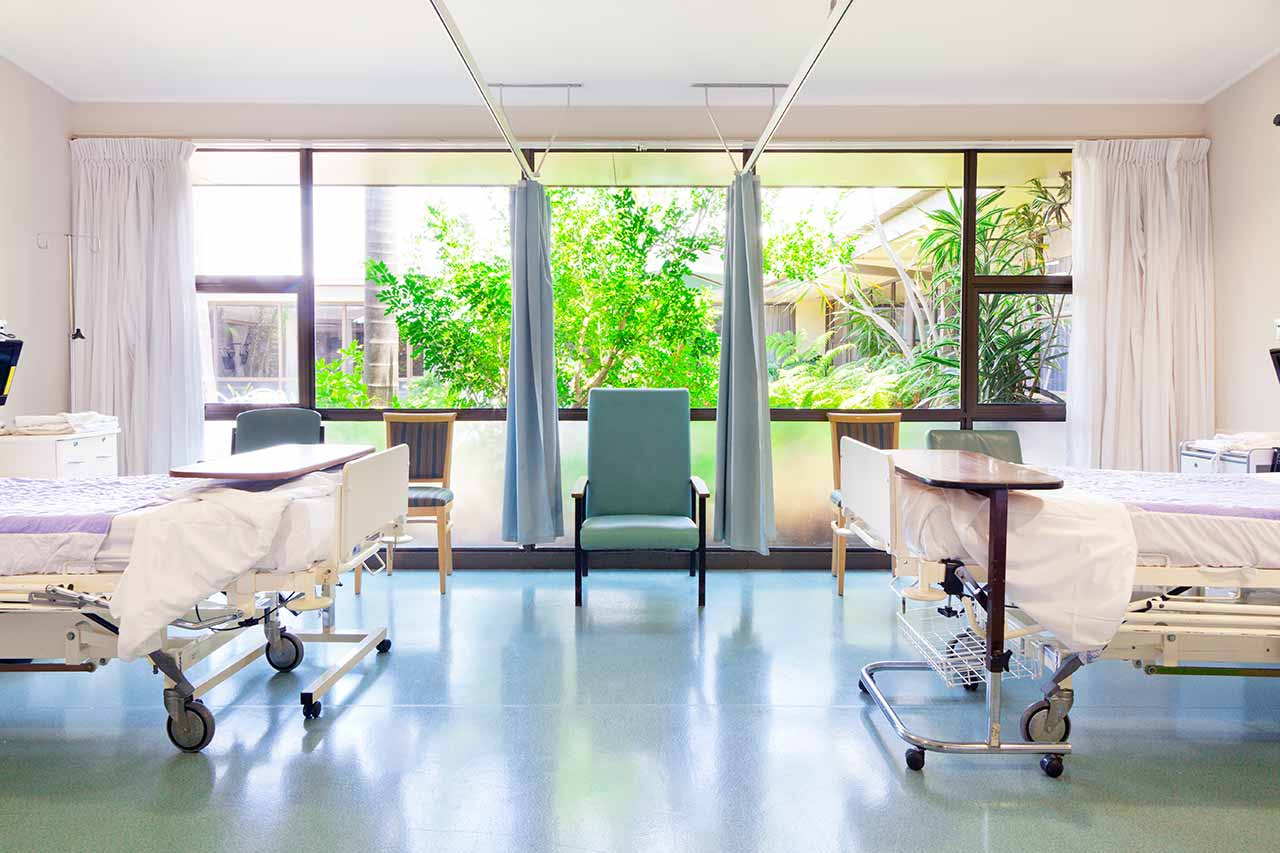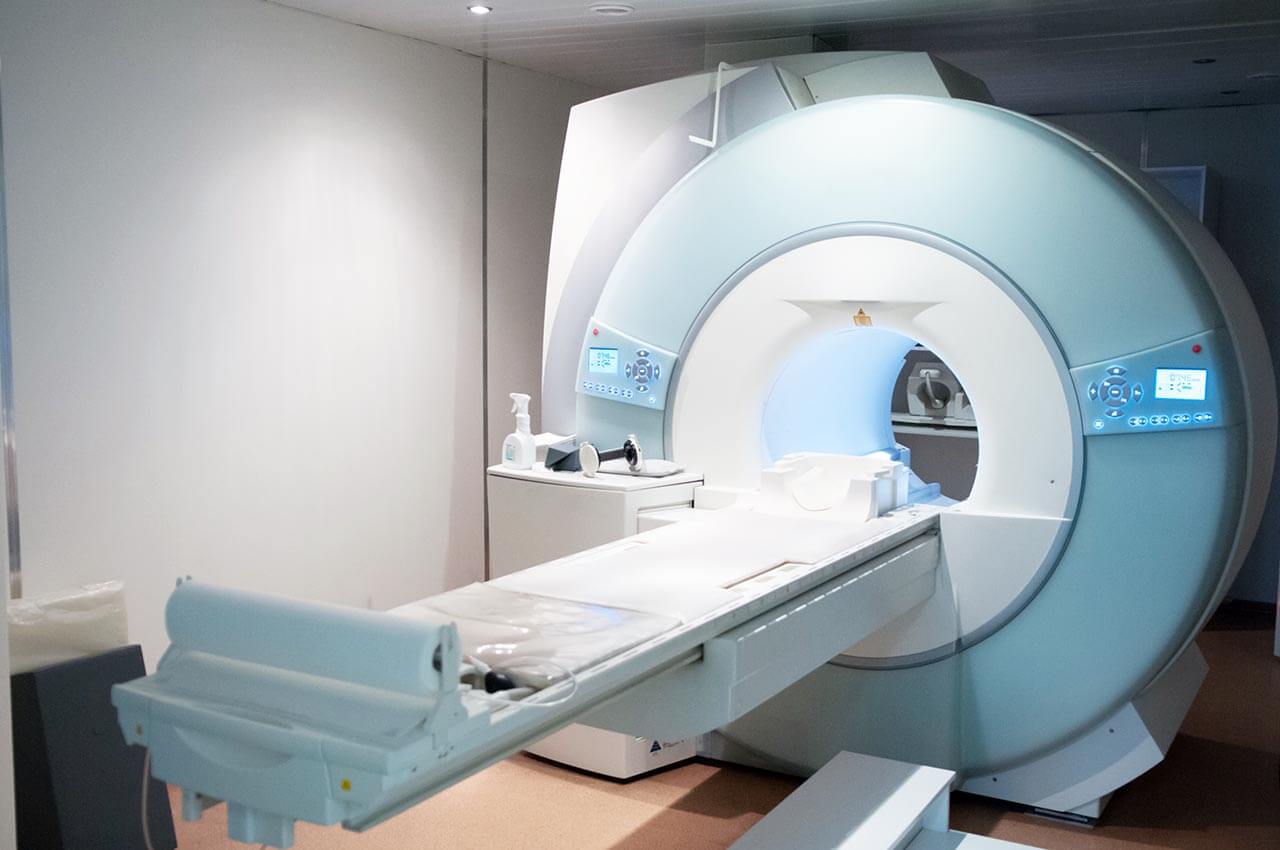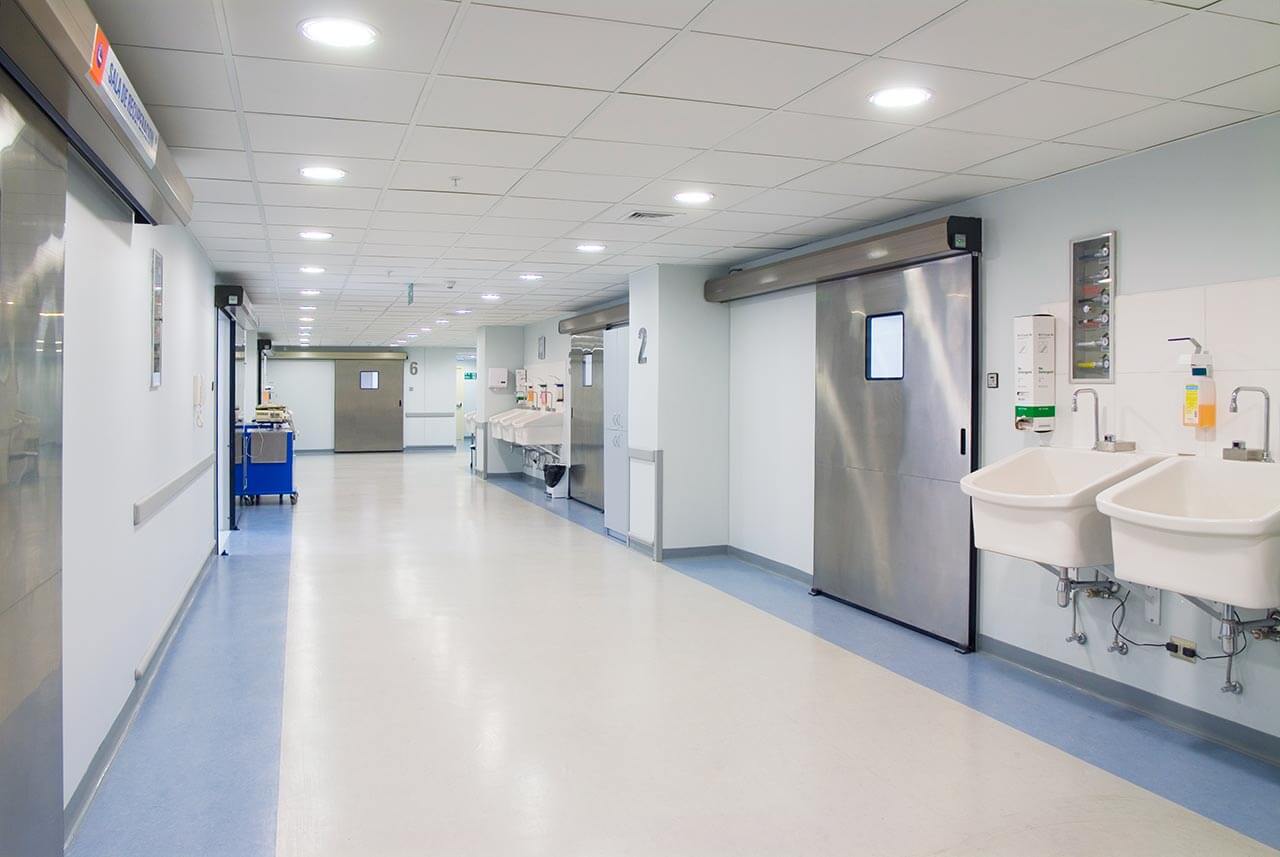
The program includes:
- Initial presentation in the clinic
- clinical history taking
- physical examination
- review of medical records
- laboratory tests:
- complete blood count
- general urine analysis
- biochemical analysis of blood
- indicators of inflammation (CRP, ESR)
- indicators blood coagulation
- abdominal ultrasound
- gastroscopy with biopsy
- analysis of hp (helicobacter pylori)
- resection of gastric polyps
- symptomatic treatment
- control examinations
- the cost of essential medicines and materials
- nursing services
- nutrition recommendations
- full hospital accommodation
- explanation of future recommendations
Required documents
- Medical records
- Esophagogastroduodenoscopy (EGD) (if available)
Service
You may also book:
 BookingHealth Price from:
BookingHealth Price from:
About the department
The Department of Pediatric and Adolescent Medicine at the University Hospital Saarland Homburg offers diagnostics and treatment of all diseases in newborns, young children, and adolescents. The department admits patients between the ages of 0 and 18 years. The key focus is on treating hormone disorders, growth disorders, diabetes mellitus, rheumatic diseases, cystic fibrosis, and lung diseases. Newborns receive medical care at the Level I Perinatal Center, which is part of the department. The department also has a well-equipped Intensive Care Unit with the possibility of various types of mechanical ventilation and extracorporeal membrane oxygenation (ECMO). The department has 62 beds for hospital stays for young patients. About 2,500 inpatients undergo treatment here every year, and almost 8,500 more patients receive outpatient medical care in the department. The doctors at the medical facility get along well with children and make every effort to make them feel as comfortable as possible during the entire treatment period. The Head Physician of the department is Prof. Dr. med. Michael Zemlin.
The department has a highly qualified team of endocrinologists who diagnose and treat young patients with hormone disorders and endocrine diseases, including those of the pituitary, thyroid, parathyroid, and adrenal glands. It is critical for specialists to detect developmental disorders in children as early as possible, such as growth disorders (short stature or gigantism) or puberty disorders. Doctors have vast experience in the treatment of children with genetic syndromes that affect the function of the endocrine system. Children with Ullrich-Turner syndrome, Klinefelter syndrome, Noonan syndrome, Prader-Willi syndrome, and other syndromes are often admitted to the department. In cooperation with pediatric oncologists and other specialized doctors, the department treats multiple endocrine neoplasia and the consequences of previous cancer treatment in childhood, which affected the function of the endocrine organs.
The department includes a specialized outpatient clinic for diabetes mellitus in children. Doctors provide medical care to young patients with type 1 and type 2 diabetes mellitus, as well as rare types of diabetes mellitus. Diabetes mellitus is a progressive chronic endocrine disease in which the body is unable to absorb carbohydrates obtained from food. The pathology causes not only metabolic disorders but also dysfunction of vital organs. It is important to timely detect diabetes mellitus in a child and provide effective treatment. The main diagnostic method when this disease is suspected is a blood glucose test. When the fasting blood glucose levels reach 7.0 mmol/L and above, the department's doctors make a diagnosis. Additional tests are often carried out as well, including general blood and urine tests, antibody blood tests, etc. Type 1 diabetes mellitus usually develops between the ages of 6 months and early adolescence. This type of disease causes an absolute deficiency of insulin in children, so the only effective treatment is insulin replacement therapy. The department's doctors prefer the most modern form of insulin therapy using a pump. Insulin pump therapy allows doctors to provide a constant infusion of insulin according to the scheme developed by the attending physician and avoid injections of insulin with syringes. The method not only guarantees excellent treatment results but also significantly improves the quality of life for young patients. Insulin therapy is necessarily supplemented by diet therapy and dosed physical activity.
Children with rheumatic diseases can also receive medical care in the department. The joints and connective tissue are affected due to the pathologies on this spectrum. The doctors at the medical facility most often have to deal with rheumatoid arthritis, reactive arthritis, juvenile ankylosing spondylitis, systemic lupus erythematosus, ankylosing spondylitis, rheumatic heart lesions, etc. Typically, children with rheumatic diseases receive individually tailored drug therapy that includes modern medications and a course of physiotherapy.
Moreover, the department admits young patients with cystic fibrosis. The pathology is a hereditary disease with lesions to the glands of external secretion, which leads to the dysfunction of the respiratory and digestive systems. Cystic fibrosis is most often diagnosed in the first few weeks of a child's life. Until today, there are no methods in the arsenals of doctors around the world that could completely cure this disease, so the main goal of therapy is to slow down the progression of the pathology and prolong the patient's life as long as possible. Depending on the particular clinical case, the department's doctors develop an optimal treatment regimen for the child, which may include antibiotic therapy, pancreatic enzyme replacement therapy, and mucolytic therapy. A good effect can also be achieved with the help of breathing exercises, therapeutic exercises, and postural drainage. Children with cystic fibrosis need regular visits to the doctor and follow-up examinations (at least once every three months).
The priority focuses of the department's clinical practice include:
- Diagnostics and treatment of endocrine diseases
- Diseases of the pituitary, thyroid, parathyroid, and adrenal glands
- Growth disorders (short stature and gigantism)
- Puberty disorders (for example, irregular menstruation or lack of menstruation in girls)
- Genetic syndromes affecting the function of the endocrine system: Ullrich-Turner syndrome, Klinefelter syndrome, Noonan syndrome, and Prader-Willi syndrome
- Multiple endocrine neoplasia
- Obesity
- Diagnostics and treatment of diabetes mellitus
- Type 1 diabetes mellitus
- Type 2 diabetes mellitus
- Rare types of diabetes mellitus
- Diagnostics and treatment of rheumatic diseases
- Rheumatoid arthritis
- Reactive arthritis
- Juvenile ankylosing spondylitis
- Systemic lupus erythematosus
- Ankylosing spondylitis
- Rheumatic heart lesions
- Diagnostics and treatment of cystic fibrosis
- Diagnostics and treatment of gastrointestinal diseases, including congenital ones
- Diagnostics and treatment of diseases of the respiratory tract and lungs, including congenital ones
- Diagnostics and treatment of other diseases in newborns, children, and adolescents
Curriculum vitae
Higher Education and Professional Career
- 1988 - 1995 Medical studies at the Free University of Berlin.
- 1995 - 2001 Preparation for board certification, Department of Pediatrics, University Hospital Charite Berlin.
- 1998 Thesis defense on a new molecular genetic method for the early diagnosis of T-cell lymphomas by confirming the rearrangements of the T-cell receptor genes.
- 2001 - 2003 Internship, Fedor Lynen Scholarship from the Alexander von Humboldt Foundation, Institute of Clinical and Developmental Immunology at the University of Alabama at Birmingham, USA.
- 2003 - 2016 Senior Physician in the Department of Pediatric and Adolescent Medicine at the University Hospital Marburg.
- 2008 Habilitation on the development of the immune system in premature and full-term children and the molecular causes of allergies.
- 2013 Extraordinary Professorship in Pediatric and Adolescent Medicine.
- Since 2016 Professorship at the University of Saarland and Head of the Department of Pediatric and Adolescent Medicine at the University Hospital Saarland Homburg.
- Since 2017 Deputy Medical Director at the University Hospital Saarland Homburg.
- Since 2021 Vice President of the Society for Neonatology and Pediatric Intensive Care.
Research Focuses
- Immunology of child development.
- Molecular mechanisms of allergy development.
- Non-invasive diagnostics in pediatrics.
Photo of the doctor: (c) Universitätsklinikum des Saarlandes
About hospital
The University Hospital Saarland Homburg is the largest hospital in the city of Homburg and the most important medical facility in the region. The hospital, which currently has 30 specialized departments and 20 institutes, was founded in 1947 and operates on the basis of Saarland University. The hospital plays a leading role in medical education, research, and medical care both in the state of Saarland and throughout Germany. With vast experience in serving foreign patients, the medical facility is also widely known in the international medical arena.
The pride of the hospital is state-of-the-art equipment that allows the doctors to perform high-precision comprehensive diagnostics and the most sparing treatment even if a patient has a severe pathology. Patients are offered innovative medicine based on the very latest scientific achievements. At the same time, the hospital offers many therapeutic methods that are used only in leading medical centers in Europe, including da Vinci robot-assisted surgery, CAR T-cell therapy, TAVI and MitraClip catheter-based procedures, innovative laser procedures, etc. Great importance is paid to ethical and social competence. The hospital is constantly improving the work of its medical personnel and infrastructure to provide medical services that meet the highest standards.
As a multidisciplinary medical complex, the hospital offers highly effective treatment of the full range of common diseases as well as rare and severe pathologies. The efforts of the medical staff, which includes over 600 doctors and 2,000 nurses, are focused on the patient and their unique needs and desires. The doctors always devote enough time to personal communication with their patients, provide them with moral support, and are sympathetic to every life situation.
Photo: (с) depositphotos
Accommodation in hospital
Patients rooms
The patients of the University Hospital Saarland Homburg live in comfortable single, double, and triple patient rooms with a modern design. Each room is equipped with an ensuite bathroom with a shower and a toilet, as well as everything else necessary: a comfortable bed, a bedside table, a TV, and a telephone. In addition, enhanced-comfort rooms and specially equipped rooms for people with disabilities are available for the patients.
Meals and Menus
The hospital offers healthy and delicious meals three times a day: buffet breakfast, dinner with a wide choice of dishes for every taste, and a light supper. The menu features dietary and vegetarian dishes. There is also a cafeteria on the territory where one can taste delicious dishes and have a cup of coffee, tea, or some refreshing drinks
Further details
The standard patient rooms include:
Religion
The hospital regularly hosts catholic and evangelical devine services. The services of representatives of other religions are available upon request.
Accompanying person
During an inpatient program, an accompanying person can stay with you in the patient room or in a hotel of your choice.
Hotel
During an outpatient program, you can stay in a hotel of your choice. The managers will help you choose the most suitable options.





